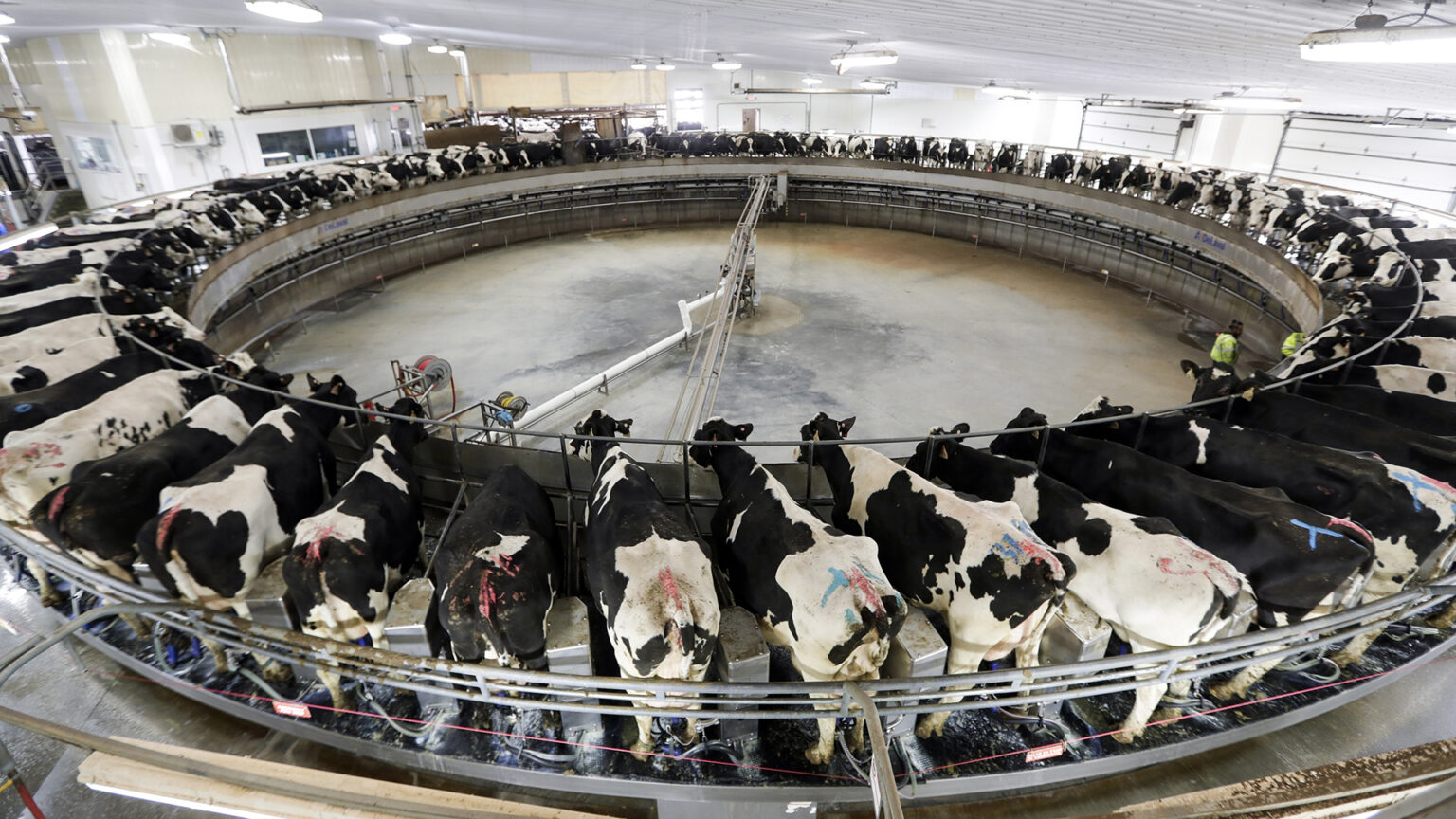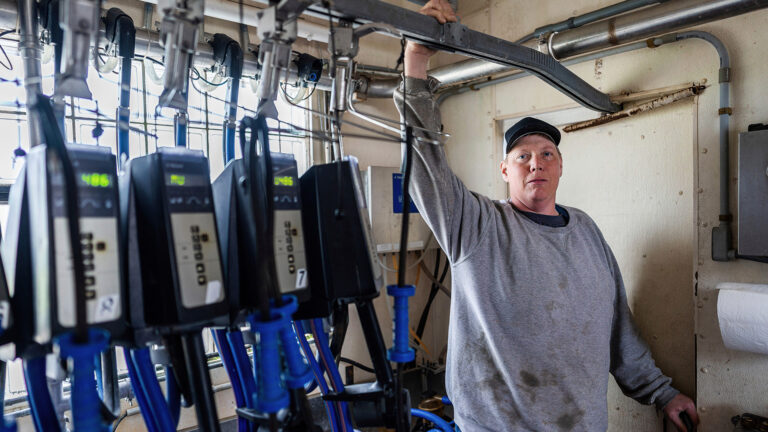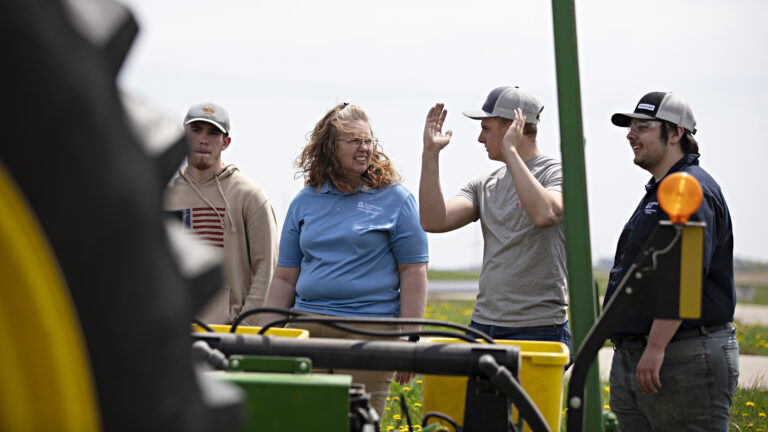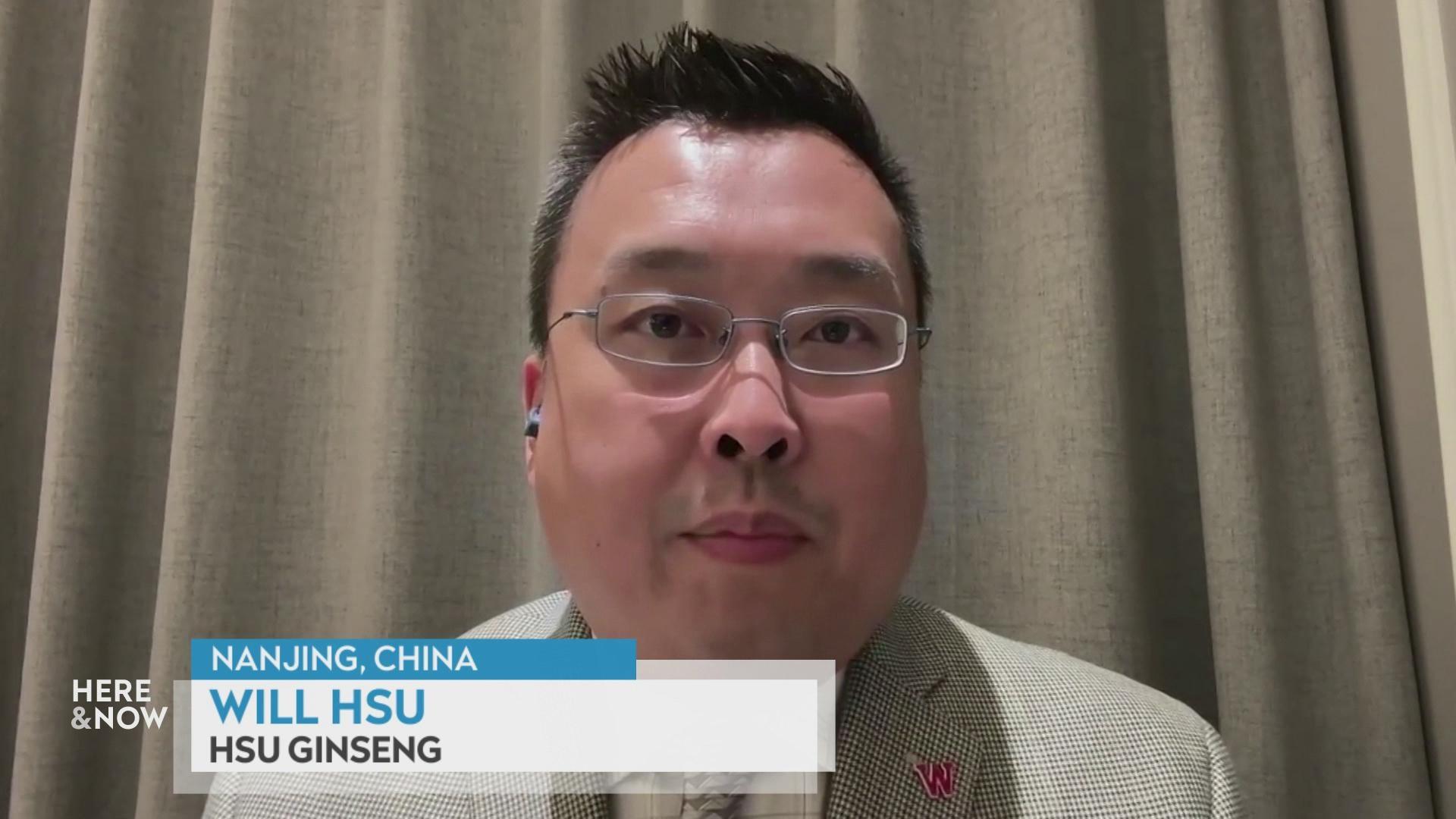Lawsuit argues Wisconsin DNR can't require preemptive pollution permits for factory farms
A Wisconsin Manufacturers and Commerce lawsuit seeks to strip the state Department of Natural Resources of authority to restrict factory farms unless and until they pollute groundwater or other state waters.
Associated Press
July 14, 2023

Cows are milked on a large carousel at a dairy in Pickett on Dec. 4, 2019. Two farm advocacy groups allege in a lawsuit that Wisconsin regulators can't legally impose environmental regulations on factory farms before they become operational. The case could dramatically loosen protections against manure contamination in state waters. (Credit: AP Photo / Morry Gash)

MADISON, Wis. (AP) — Wisconsin regulators can’t legally impose environmental regulations on factory farms before they become operational, two farm advocacy groups allege in a lawsuit that could dramatically loosen protections against manure pollution in state waters.
Wisconsin Manufacturers and Commerce, the state’s largest business group, quietly filed the action in Calumet County Circuit Court in May on behalf of the Wisconsin Dairy Alliance, which advocates for factory farms, and the Venture Dairy Cooperative, which lobbies for farmers.
Peg Sheaffer, a spokesperson for environmental law firm Midwest Environmental Advocates, called the lawsuit “a reckless attempt to dismantle water quality protections in Wisconsin.”
“As (factory farms) continue to proliferate and expand, the amount of manure they produce — and the potential for spills — will only increase,” Sheaffer said in a July 13 statement. “If this lawsuit is successful, it could virtually eliminate any oversight of how (factory farms) dispose of the massive amount of manure they generate. That would be a disaster for rural communities throughout Wisconsin.”
Wisconsin Manufacturers and Commerce attorneys Scott Rosenow and Nathan Kane didn’t immediately respond to a request for comment.
The farming industry and environmentalists have been locked in a fierce back-and-forth over the regulation of factory farms, defined as farms with at least 1,000 animal units. According to the state Department of Natural Resources, 262 such farms are currently permitted to operate in Wisconsin.
Conservationists say factory farms produce massive amounts of manure that contaminate groundwater, streams and creeks. Industry advocates counter that regulations are too strict and stifle growth.
The battle came to a head in 2021 when the Wisconsin Supreme Court ruled that the DNR can impose conditions on factory farms’ water pollution permits to protect the state’s waters. That decision would still stand if the Wisconsin Dairy Alliance and Venture Dairy Cooperative win the Calumet County lawsuit, but it would have little practical effect.
The DNR currently requires factory farms to obtain wastewater permits within 90 days of becoming a factory farm or expanding. The DNR can impose requirements in the permits to protect water, such as requiring the farms to monitor pollution levels in groundwater and implement manure management plans.
The department also can limit the number of animals on the farm through the permit. In June, it scaled back S&S Jerseyland Dairy’s request to expand from roughly 5,000 cows to 10,000 cows, allowing the operation to add only about 2,400 animals.
The Wisconsin Dairy Alliance and Venture Dairy Cooperative allege in their lawsuit that federal courts in 2005 and 2011 struck down the U.S. Environmental Protection Agency’s authority to require factory farms to obtain permits before they actually discharge contaminants into navigable waters. Therefore, the DNR’s requirement that factory farms obtain permits before the fact is also invalid because it now conflicts with federal law, they argue.
DNR spokesperson Dana Porter declined to comment on the lawsuit on July 13, saying the agency doesn’t publicly discuss pending litigation.
 Passport
Passport











Follow Us